There is nothing more critical to an athlete than playing time. Watching from a bench while your teammates get an unequal share of time is not any player’s ideal situation. When it happens, a bit of introspection will help you answer the question, “why does my coach not play me?”
Kobe Bryant said, “I’ll do whatever it takes to win games, whether it’s sitting on a bench waving a towel, handing a cup of water to a teammate, or hitting the game-winning shot.” To his point, it takes every player to be “all-in” to secure a win. Even skilled all-in players sit the bench from time to time.
Although the reason varies for being benched, it is essential to know how to deal with a lousy coach and ask for playing time. Without this information, you risk moving from being a benched to a player to not being a player at all.
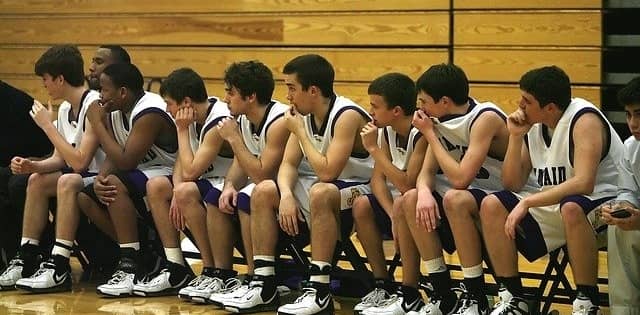
Why do coaches bench good players?
Ability and understanding
Aside from early youth sports, players should expect not to play as much as a higher skilled teammate. Coaches are often under challenging decisions of placing a player in the game to give them more time versus playing the athletes they need to win. The result is a benched player.
Before getting upset, this can be an advantage. 65% or more of the population are visual learners. Sitting the bench provides a unique opportunity to watch, anticipate the required moves, learn plays, and analyze opponents. This rare observation is executed without the pressure of “messing up” a game.
A new player may not yet grasp the team’s rhythm. Many coaches bench for a few games to allow players to observe how the team functions. Seasoned teammates provide valuable examples of plays, expectations of the new league or team, and insight into the team’s unique flow.
Illness and injury
Other typical reasons to have a player sit out the game is illness or injury. Many coaches take extensive training specifically to know the signs of injury and how to respond. There are liability concerns with allowing an athlete to play with an injury.
In recent years, sudden cardiac arrest and concussion training in youth sports have become center stage. For parents who played through injury, this comes as a surprise. If your son or daughter has pulled a hamstring, the coach will likely rest them until they heal.
Concussion protocols in many areas has adopted the policy that if an athlete shows any sign of concussion, they must be cleared by a medical professional before returning to play. The risk is second-impact syndrome. When a person suffers another injury to the head before the initial one has healed, it puts the athlete at risk of permanent damage or even death. If a person has had a previous concussion, they are more at risk of another.
Illness also is another legitimate reason for benching an athlete. Often coaches look at neck up or neck down. Anything in the athlete’s chest, stomach, or any place below the neck typically is an indicator the athlete needs to sit out. Playing through a virus such as influenza can complicate the infection and lead to a more serious secondary infection. Neck up illnesses such as colds or runny noses are frequently acceptable to play through.
Attitude, practice ethics, grades
When it comes to the less concrete reasons, the pill of benching is a difficult one for a player or parent to swallow. We want a fixable reason or justification for the benching that does not reflect poorly on ourselves. Yet, sometimes, even good players are benched for reasons outside performance or injury.
Wearing the title of athlete includes being mindful of how one acts in and out of the performance. They become role models to upcoming teammates and a reflection of the team. Most reputable coaches will not tolerate athletes behaving in angry, unpolished, and unrefined ways.
Sportsmanship is a cornerstone of sports. You see this with shaking of hands, high five after races, and complements of fellow competitors in interviews. You see it in the grace of a loss, regardless if an athlete is merely holding it together until the locker room. You see it when they clear their head and work harder in practice.
When an athlete throws a fit during a performance, is argumentative with feedback, or talks down to teammates, coaches notice. This behavior brings down the entire team. A coach will bench a player for this type of behavior.
The same applies to practice ethics. An athlete who slacks off in practice, goofs around, uses the time for socialization, coaches notice. When the choice about who gets to play is between a player who works hard or a player who doesn’t, the priority will go to the one who puts in the effort.
Dealing With Bad Sportsmanship
Take the opportunity to prove you want to be there. Put extra effort in drills, reserve chatting with your friends until water breaks, help pick up equipment after practice, ask for tips, and say thank you. These traits stand out.
Finally, check in on your academics. Many teams have a required GPA to maintain eligibility. If your grades are slipping, the coach may have no choice but to bench you. Grade policies are found in handbooks provided online or at the beginning of a playing season.
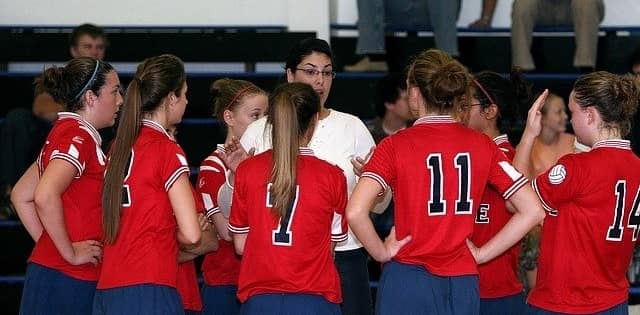
How to deal with a bad coach
It is helpful to recognize the signs of experiencing a bad coach when dealing with a bad coach. Are you demotivated to continue showing up to practice? Does the sport that once brought you joy seem to be the place you’d least like to be? No matter how hard you try, does it feel like your coach is unhappy with your progress?
If, after evaluation, you determine it is your coach, you have choices. Find a new team, quit the sport, or continue with the coach you have. Finding a more productive and positive coach will grow you exponentially more than a poor one.
Sometimes, there is no choice but to stay where you are. In this case, find a lesson in the negativity. There is a mental game of sports. Aggressive coaches can help you develop a mental toughness preventing you from being shaken by trash talk. Further, by standing up for yourself, you learn a valuable life lesson. You cannot depend on others to have your back if you don’t have your own.
Focusing on your teammates and the drills help redirect your focus. Instead of putting so much emphasis on the coach, learn from your teammates. Figure out how to gel with them during the game and practices to have a more cohesive unit when it matters.
Take ownership of your own game and skills. Watch YouTube videos on drills. Seek out camps. Look up how to goal plan and set targets.
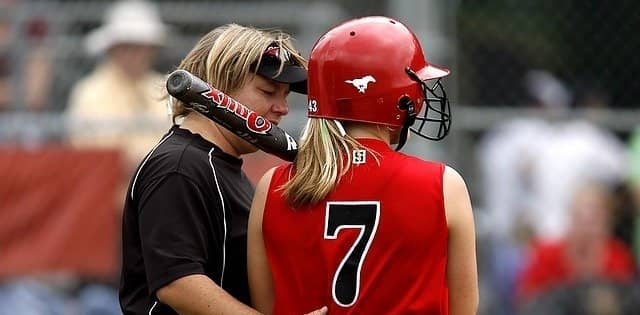
How to ask your coach for more playing time
Before you talk to a coach about extra playing time, check out notes from your initial meeting. Many coaches go over expectations of athletes and repercussions to breaking those. For example, maybe over winter break, you are expected to practice, but your family goes on vacation. There is a consequence to that choice.
Perhaps there is something in the guidelines you are failing to adhere to, change that. After your adjustments have had substantial time to prove they were not a fluke, reevaluate. If you are still not getting playing time, it may be time to approach the coach.
Be the one to approach your coach. Sending your parents to address your coach first is the more natural step, but it does not portray ownership and responsibility. Don’t ambush your coach during practice, either. Respect the practice time and ask to set up a meeting before or after training.
When your coach gives you feedback, take it with an open mind. It is generally not useful to compare yourself to a teammate. Instead, keep the focus on yourself and what to do to improve your position on the team. Try not to come off as attacking or with a victim mentality.
This conversation can be a difficult one to head up. Take the time to make a list of what you want to say, including how to open the conversation. Perhaps run your speech by a parent or trusted friend. Instead of, “Why aren’t you playing me?” a better approach would be, “what can I focus on so I can get more playing time? What are my weaknesses? Are there any drills I can practice on my own time?”
Some coaches are great for spit-balling answers, but if you want a well-planned outline, schedule a meeting and give your coach time to put together suggestions. This thoughtfulness goes a long way.
Your coach likely has to balance between player development and winning a game. Many coaches will put players in when they know they have enough of a lead or strong enough teammates to allow for the mistakes that come with being in a newer position. Be prepared to hear some things you may not want to. Anytime you are seeking constructive criticism, you have to prepare yourself that it may sting a little. Growth isn’t easy. Click here for How to Make Your Volleyball Coach Notice you
It’s your game to play
Whether you find yourself on the bench, or not, it is your game to play. You can walk away from it, learn from it, or do something about it. Each decision you make determines your future. In the words of Arnold Schwarzenegger, “Your struggles develop your strengths. When you go through hardships and decide not to surrender, that is strength.”

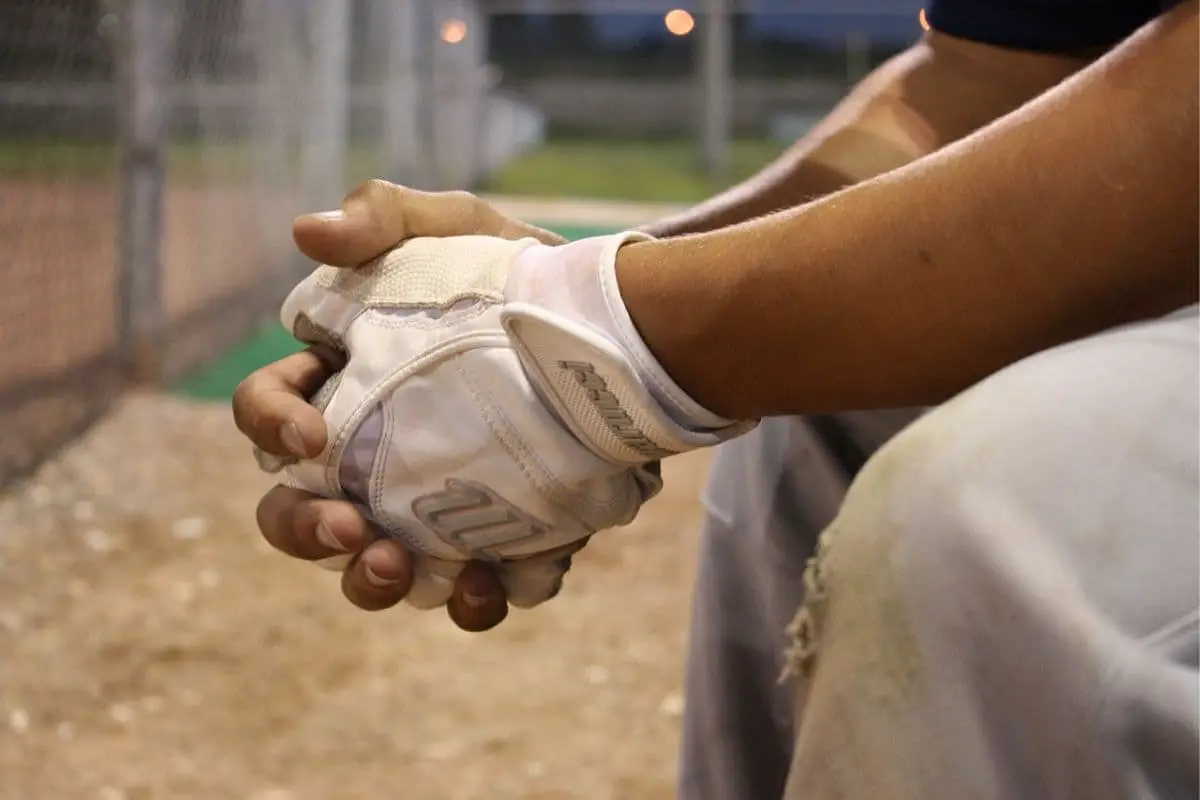
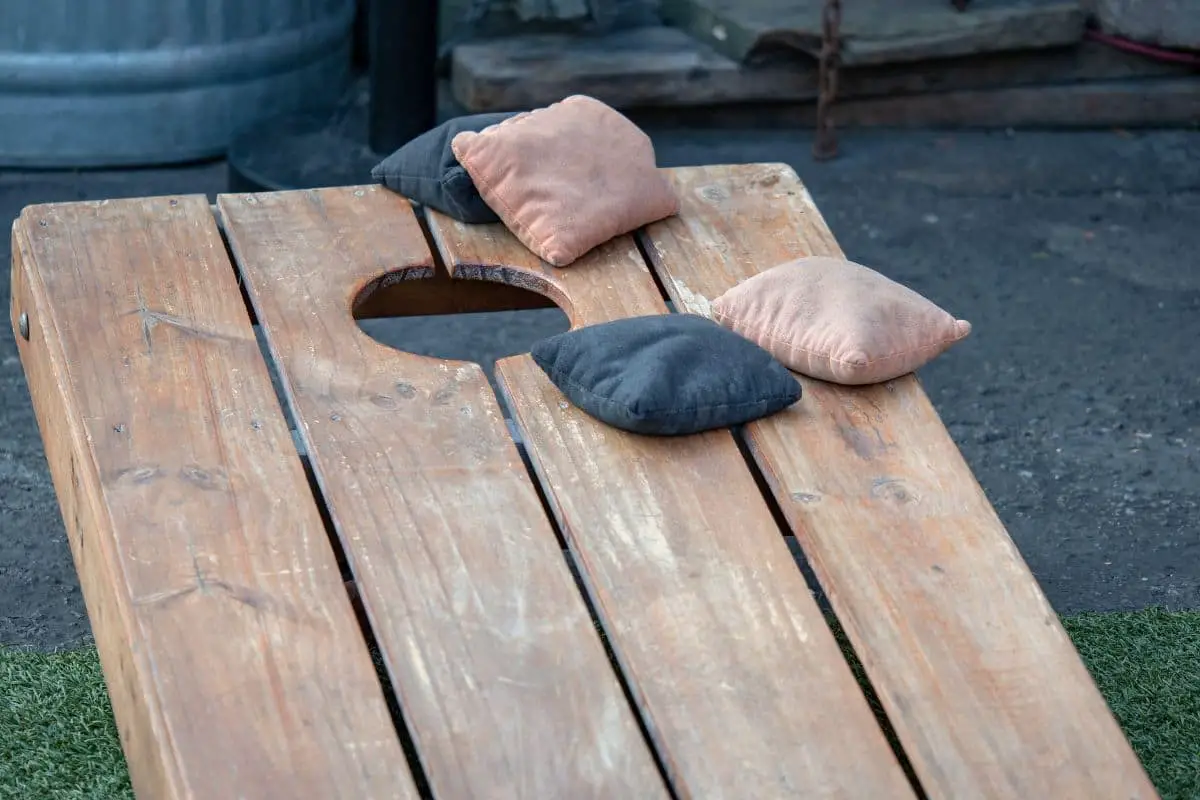
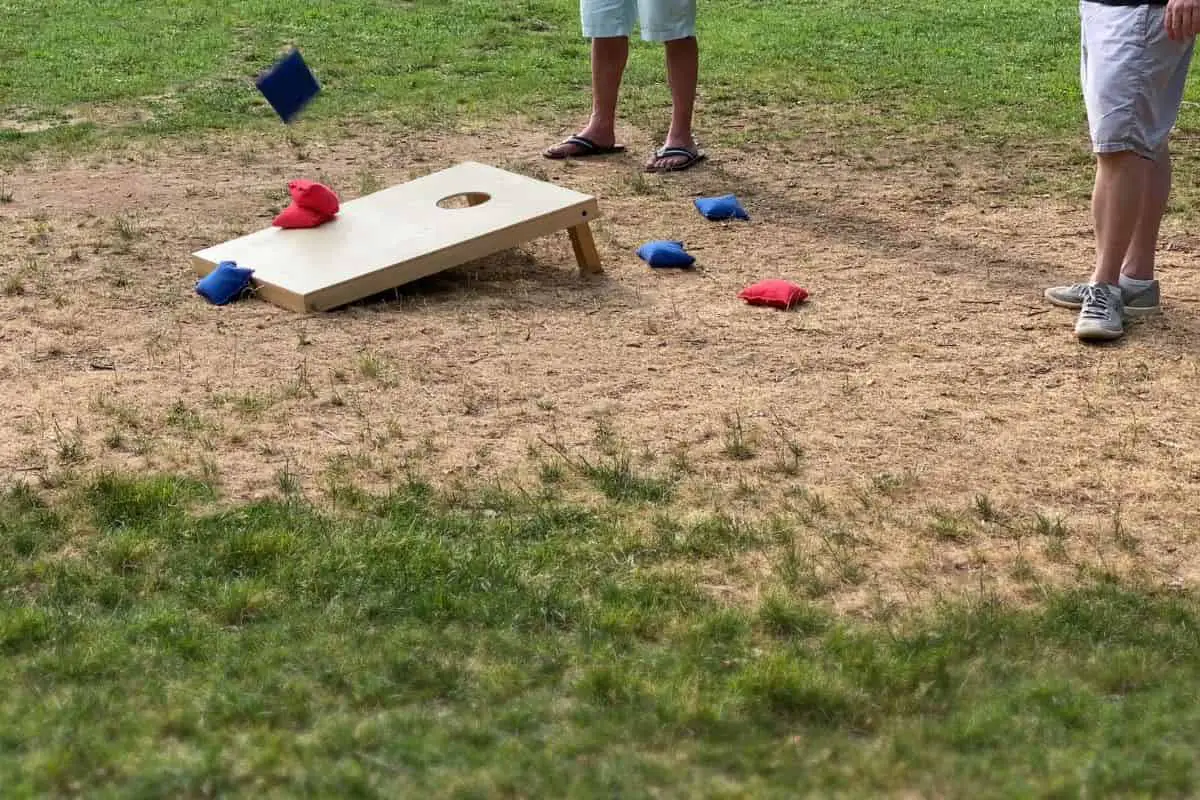

Leave a Reply
You must be logged in to post a comment.